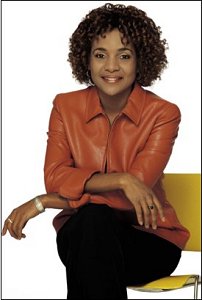Ontario’s incoming lieutenant-governor said Tuesday he will play an “activist” role over the next five years aimed at improving the lives of people who, like him, live with physical disabilities.
Stricken with polio when he was three, Onley grew up to become one of Canada’s first on-air personalities with a physical disability when he joined CityTV in Toronto in 1984 as a science and weather reporter.In his long career with the station, he has also been an education reporter, a science and technology reporter, news anchor and producer.
Outside of his journalistic endeavors, Onley has been high-profile advocate for people with disabilities
Some may look at this appointment and shrug as another media personality is named to another ceremonial role. However, the more I’ve thought about these sorts of appointments, the more that the nominations of people such as Clarkson, Jean, and now Onley make sense.
These roles haven’t any real power and they are largely ceremonial, meaning the most important parts of the job description are to visible, a good speaker and yes, telegenic. Onley is also a highly accomplished Canadian in his own right and Ontario will draw upon his professional talents in his new job.
The other types who may fit well in these sorts of roles are sports personalities, actors, and maybe former politicians. Since most sports stars can barely utter that there’s a “home… run… deal… at… Bob’s… Chev… olds” with any authority, that leaves actors, former politicians, and media personalities. Former politicians bring partisan baggage to a role that is supposed to represent Canada’s apolitical head of state, our queen. Actors can deliver a good speech, however, media personalities can do this and bring a professional credibility to the job that most can appreciate.
As said, these roles are purely ceremonial and the technical responsibility of these people are to represent the Queen in Canada. We are long past being ruled by a monarch, thus these positions simply afford an opportunity to put a good face – a face that can deliver a speech, with credibility and on television – forward to represent Canada.
Prime Minister Harper made the appointment and Dalton’s man Kinsella seems to appreciate the decision. Therefore, this shouldn’t make for any rough political waters.
UPDATE: Some readers have, of course, pointed out the constitutional importance of GGs and LGs! I would respond by saying that advice and recommendations on constitutional matters are never in short supply to these people when such advice is needed for such a situation. Presumably and hopefully, all GGs and LGs make those decisions under much advisement. Further, this also speaks to the appropriateness of journalists to take up the role as they are generally more versed in political matters than most people.
A constitutional scholar on the other hand may not be able to fulfill the de facto responsibilities of these figures because while they may be versed in the legal function of their role, they may not be ideal for lacking the qualities I outline above.
